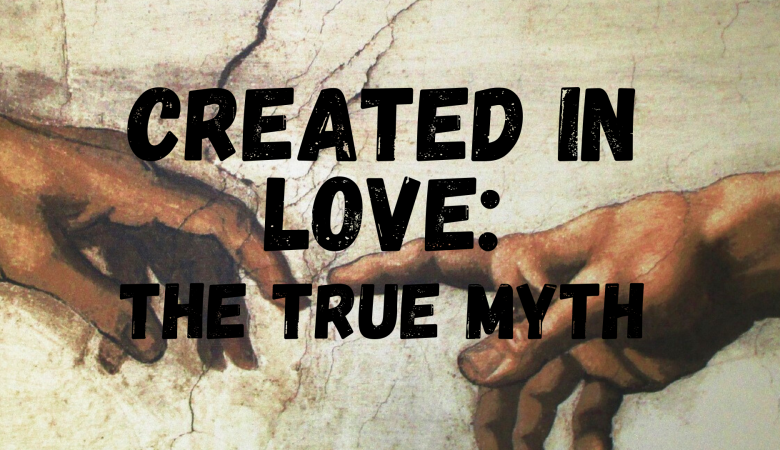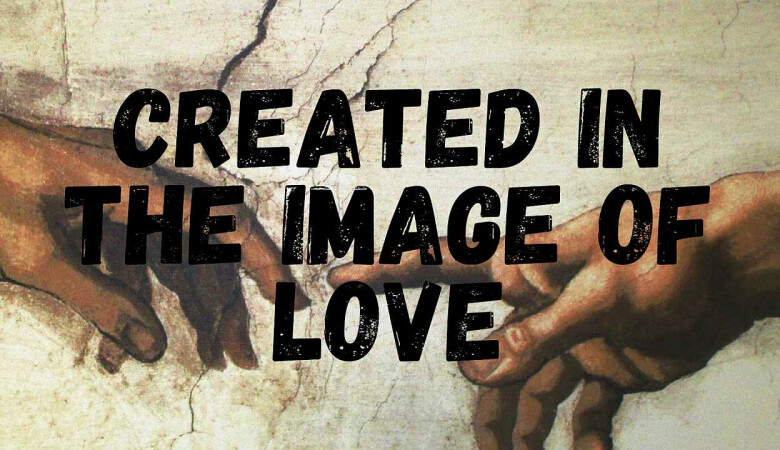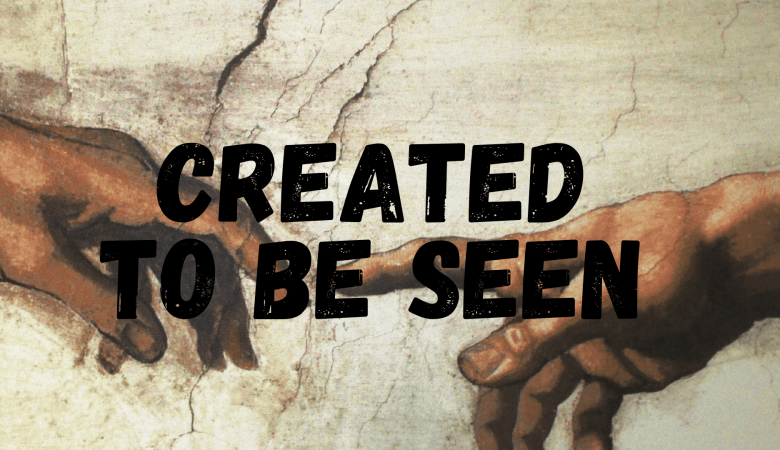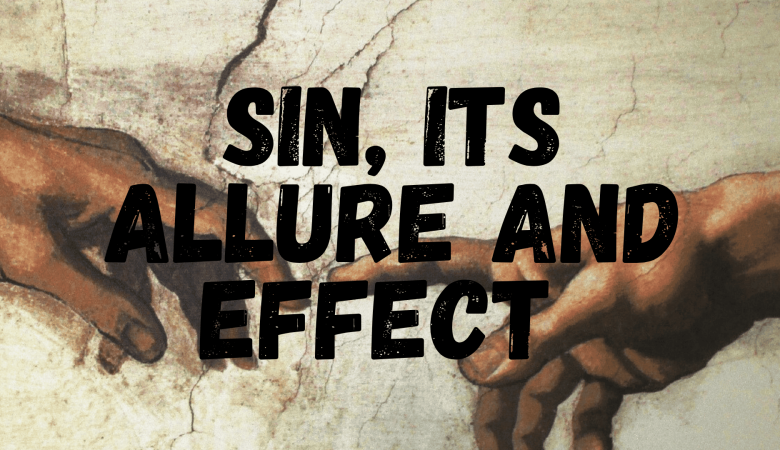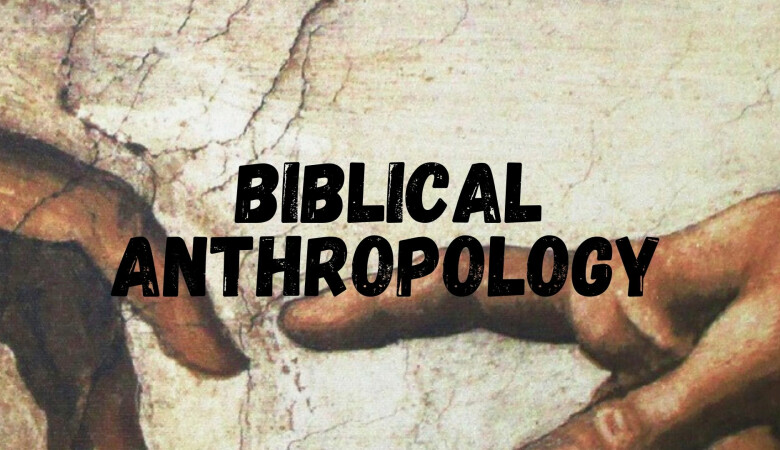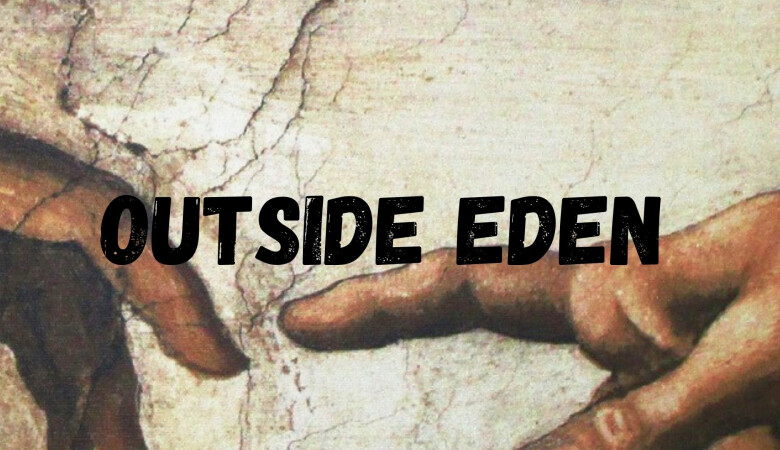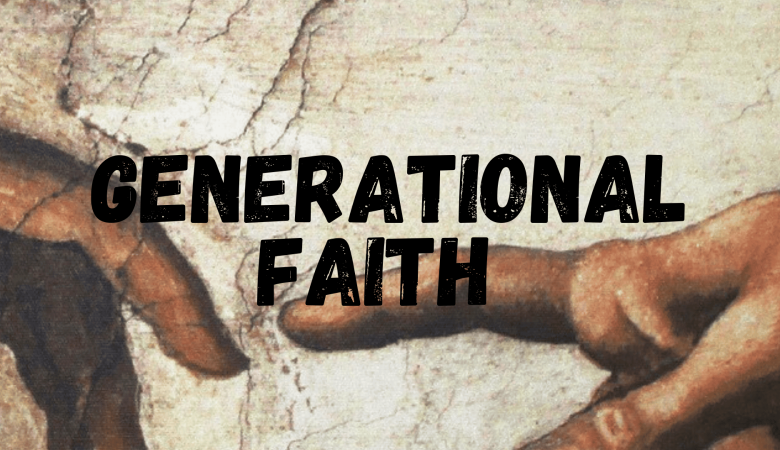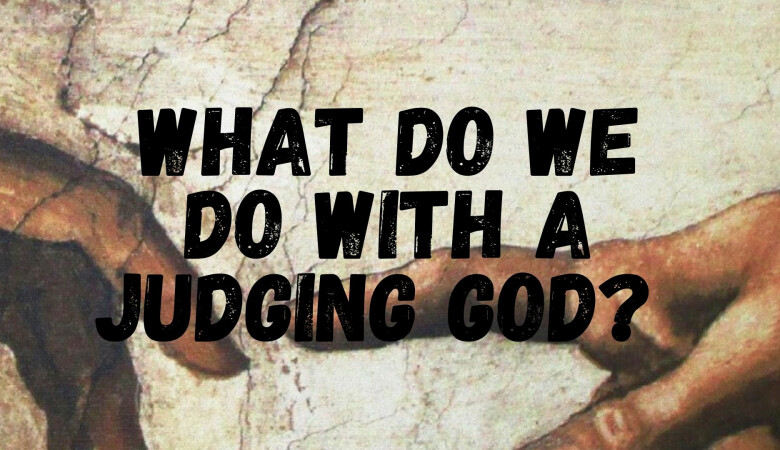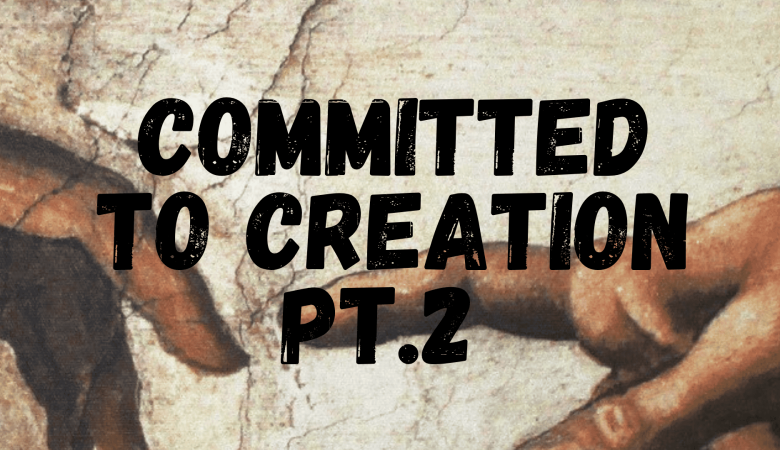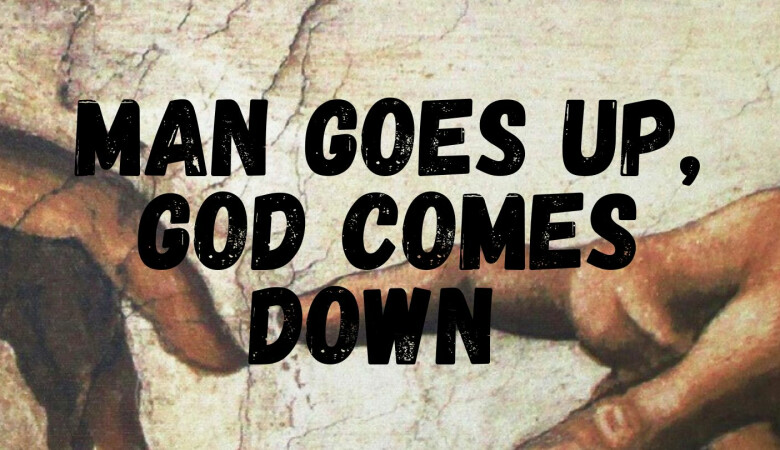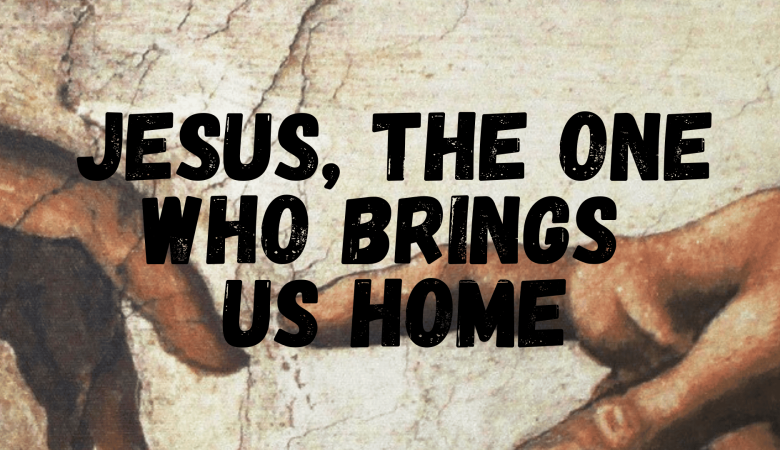Series: Created in Love
Missionary Faith
December 22, 2024 | Peter Rowan
Passage: Genesis 11:27
Summary
In a world filled with uncertainties, Abraham's story offers a timeless lesson on faith and trust in God's promises. Faith is not about adhering to rules but trusting in what God has done and will do. Abraham's journey began with a call from God, marking the start of his relationship with Him. Despite challenges, Abraham's faith endured, highlighting God's faithfulness and the fulfillment of His promises through Jesus.
Transcript
Let's pray. Lord, we pray as we heard these words from Galatians and as we hear throughout the Bible, for faith, Lord.
Faith like Abraham's faith. Faith that heeds your invitation to follow you and faith that rests on your promises to us that you will take us through to the end God. Would you pray even as Gordon reminded us from St. Augustine that we would receive your word, that it would change us and shape us and do all that it needs to do in us, Lord, that we would be ready for the coming, for your coming. We pray for this now in Jesus name, Amen.
You may now be seated.
Maybe you noticed that it's cold outside. I woke up this morning and it was 16 degrees out. And I'm glad we're in here than in my office because my office is always pretty much the coldest, one of the coldest rooms in this building. It's north facing and it's just cold. It's cold out.
As many of you know. Probably not because you read it, but because you experienced it. Last night was the longest night of the year. Yesterday the sunset was at 4:44. This morning the sunrise was at 7:27.
That's 14 hours and 43 minutes. It's a long time. It's a lot of darkness and a lot of cold darkness. And of course in some ways it's very fitting. I really thought about going into this, you know, why do we have Christmas right around this time?
Is it Christians just grabbing onto pagan holidays? I really Wanted to give a whole long argument about why that's not the case, but I just didn't fit with the text, so I'm not going to get into that right now. But it's very fitting that we have this season of Advent in this kind of time of the year, in the cold, dark time of the year, a time when we reflect on the long waiting of Israel for the Savior to come and the long waiting of the church for our Savior to come again. It's a great time of faith, right? It's a time of sitting in this reality of faith and waiting and just trusting that the promises of God are true and good and he is a faithful God.
Of course, it's a time also when we reflect on the fact that the world is not as it should be. And we long and we cry out to God for the correction of all things.
We reflect on the hope that we have not in the things of this world, but on this coming and faithful God, our faithful Savior. And for many of us, this sitting in this longing and this hope, you know, we have sort of maybe big picture things that are going on that kind of help us to long more. You can think of sort of big picture things like another government shutdown that was looming, or ballooning national debt, or another school shooting, or a car running through a Christmas bazaar in Germany. Or you can think of just the ongoing conflicts around the world, these kind of big picture things. But those don't hit us too much.
I mean, they do cause us to long for a King of Kings and a Lord of Lords that will reign with. With justice and righteousness and peace, as we have already thought about from Jeremiah 33. But also, you can think of Isaiah 9. It talks about this reality, but the darkness often isn't as felt on the big picture scale as it is on the more acute scales of our personal lives. It seems fitting in a strange way that the dark days come between these huge family holidays, when actually the deep loneliness of life can settle in with spouses that have, you know, that we've outlived.
And just the loneliness of it. Or children that live a long ways away, or just friends that we don't talk to anymore for one reason or another. Just the acute sort of longing hits our hearts more deeply in this season. A lot of times this year, maybe your body is aching more and getting out of bed is a choreography, you know, work, if it pays the bills, isn't grabbing your attention as it once did. What I'm saying is that a lot of times we're just come face to face with this dynamic of our longings and are waiting upon God.
And just this act of faith, believing that what God has said he will do, he will do. But also not always experiencing sort of the heartwarmingness of faith. Instead, we're sitting in the long, dark, cold night belong to this coming, faithful God. But our longing has been long. So this morning we're at the end of our series in Genesis, which I said this whole fall, it's just going to be in this beginning part of Genesis.
And we come to the end of this sort of beginning section. We come to Abraham. Abraham is this figure that looms large over the entire Bible. And of course, Abraham actually looms large over sort of the religious landscape of the whole world. About half of the world's population adheres to an Abrahamic faith, whether Islam or Judaism or Christianity or there's a few other smaller ones.
Abraham is this great figure of faith. And Abraham is commended all over the Bible, but particularly in really key passages in the New Testament. Abraham is the father of faith. He's a friend of God. He's.
He's the father of the faithful. I mean, we heard from Galatians, chapter three, but we could look at passages in Romans and of course Hebrews and elsewhere about Abraham being this great figure of faith, the father of the faith. And so this morning I want us to. I want us to see how this faith of Abraham in many ways is the same faith that you are called to and I hope that you are living in if you are following Jesus. And I just want to organize our time with two points, okay?
And they're just these, the faithful people and the faithful God. Okay? Pretty simple faithful people. Okay. What we have to do is we have to ask the question, what is faith?
I'm going to get to that. What is faith? I want to say a few other things. First, the Bible tells us again and again and again that the core of Christianity is not whether or not you have put, you know, the ten Commandments on the halls of your houses. The core of the Christian faith is not, you know, whether or not you have been a good person all year long.
It's not even the core of Christianity isn't about whether or not you've devoted your life to the good habits of living, like coming and devoting your time to God and worship or learning how to pray or, you know, being faithful with your tithes and offerings. The core of Christian life is not, you know, having gone on retreat and having had some kind of spiritual Enlightenment or spiritual reality, the spiritual reality of God coming to you and special way. The core of Christian faith is not learning how to be a nice person. I mean, all of those are things that probably people on your street might believe. You might be thinking that that is not the core of Christian faith, the Christian belief at the core of Christianity is this idea of faith.
Okay? A friend of mine, Nate Walker, who I went to college and seminary with, he pointed this out, that we tend to divide the world. This isn't unique to him. I mean, you'll get this. We tend to divide the world up by those who get it and those who don't, right?
By those who get it and those who don't. And obviously, I mean, the main way that we kind of think of this as we divide the world up between the good people and the bad people. Now, we can. We can define that differently. You know, we can define that as the generous people and the stingy people.
We can divide that by, I don't know, the rich people, the poor people, whatever you want to put on the good and bad side of that. You could, you know, you can think about this. Racism is largely this kind of dynamic, right, of saying the people that are like me and the other people, the people who get it, people who are like me, people don't get it, other people, however you want to define that thing. We divide people up in these kind of bifurcations primarily, actually, as it just relates to us. And so the good people are the people that have been nice to me, and the bad people are the people that haven't been.
We can think of them primarily as friends and enemies. We can think of those who are the ones who are in, as far as we are concerned, and the ones who are out. And actually, here's an interesting thing. A lot of people think that this kind of approach is actually the whole thing that's wrong with the world. The bifurcating.
It's just all of what's wrong with the world. And so the main thing that the world needs is the elimination of these distinctions, right? What we really need is just to tolerate everybody. Everybody's in. And let's make tolerance our highest virtue.
The problem, of course, with that is that oftentimes then how you divide the world is between the tolerant and the intolerant. And you just still have the good and the bad, right? It's still the good and the bad. And you know that that's true. The fighting doesn't seem to stop.
You still have the in and the out, basically. We're all always dividing up the world. And in some ways, the Bible actually does do this. The Bible does divide up the world, but the Bible divides up the world by those who have faith and those who don't. Faith is the core of Christianity, the core distinction.
And yeah, like I said, my guess is that most people would say that the Bible divides up the world by those who obey the rules. Right? That's why we need the Ten Commandments all over the place, because that's the main thing. That's the main thing. Do you obey the rules or do you not?
But that's not it. No, it's about faith. Those who have faith, those who don't have faith.
And why this might just seem like just one more sort of bifurcation. Actually, I want to suggest to you in some ways that it's really not.
It really isn't. Because we kind of tend to think that people that maybe should be part of the church or the people that we tend to like, maybe they're really the funny people or they're the sociable people, or they're the people that, I don't know, that like to read books. And we like to read books. And so maybe they should be in. You know, we kind of just say, like, the people that are most like us maybe should be the ones that are in.
But actually, when you look at the church, when you look at the church globally, what you find is that there's no one kind of person. I mean, Christianity is unquestionably the most diverse organization to have ever, ever, ever existed. And it's because of this thing. The core of Christianity is not all this list of things that we are more inclined to make it. It is about whether or not you have faith in God.
Okay, now what is faith? So I'm going to say faith is trusting in what God has done and in what he says he will do. Doesn't that sound rather adventy? Trusting in what God has done and the promises of what he will do. That's it.
And if that's it, then it really isn't so much about you. It's far more about God. You'll have to dress a certain way. You don't have to be the good storyteller at the dinner parties to be in none of that. And again, without doubt, this is why Christianity has been translated to all the different cultures of the world, all the different personalities of different kinds of people, all the different education levels, all the different economic levels.
It is not about you.
You know, if we're to keep reading. And I was really Jess and Sylvia, Hannah's not here this morning. They know that on Tuesday we're going through this. I'm like, you know, the hard thing about Abraham is when do you stop? How do I stop the story of Abraham?
Well, this is a good beginning, but if we were to keep going into the next story, what we'd find out is that the very next story is a story about Abraham going down to Egypt and basically lying about who his wife was. Actually, that's the first thing you. That's the first time Abraham talks in the Bible. She's not my wife. He's lying.
This is the first thing he does. Right. Crazy. And some people think he's basically selling his wife. And that's how he gets ahead in life because he makes this connection with Pharaoh.
Oh, man, it's just awful. He's a coward. She becomes the mistress of Pharaoh. And then if you actually keep reading a few more chapters later, we could read about how Abraham takes his wife's servant basically as his girlfriend and gets her pregnant and then kicks her to the curb and she becomes homeless. I mean, it's like, what's happening here, right?
And again, think about this. Most people think Christianity is about being a good person. You know, why should God. You go to heaven and you're like, you know, at the pearly gates and God says, why should you be allowed in? You're like, well, I like, on the scale of things, like, I'm pretty good.
I mean, that's how so many people respond. Maybe that's how what you think Christianity is. And right here at the very beginning, the person of faith, we're like, I don't think that's a very good dude. There's a lot there that's not really commendable. It's wild that so many people look at Christianity and say it's about being good and doing good.
There's no way we could look at Abraham and say, man, this guy's got it together, right? At least not completely. But then we're told Abraham believed God and it was accounted to him as righteousness.
Act of faith. Okay, we watched a movie on Friday night as a family, a new movie. It's called that Christmas. Maybe some of you have seen it, the main story. There's a few different stories that are happening, and one of the main ones is these two sisters.
And one of the sisters really kind of has things together. There's actually a line. They share a bedroom, and there's a line down the bedroom and One of them on one side, everything is really put. It's what every parent wants. Everything's in their place.
You know, it's all orderly. And the other side, it's just like, little bit like my side of the closet. It's just a little bit like this kid. You're like, did anybody teach them to put their socks away? And stuff like that?
And what happens is that the child, the more naughty child here, she does this awful thing that ruins the Christmas program, and she puts together this booby trap so that she shoots this thing and this thing happens and this thing happens. And then the dog pulls away right when the owner's underneath this big thing of snow and the snow crashes down on the mean dog owner, you know, and you have all this thing going on, and the big question that is posed for them and the conundrum is that the good sister wants the bad sister to be good. Because then she. Then she might be on the nice list and she'll get presents in Christmas will be better. You know, there's this big naughty list, nice list happening.
Okay? If we keep going on, what happens is actually all these mean things that she did, you find out, oh, she was actually really good. She was doing all these things out of kindness, blah, blah, blah. And you kind of go, well, maybe everybody's on the nice list. And you're like, no, no.
Okay, Christianity says that's not how it is. Everybody's on the naughty list. Y'all know that you're basically on the naughty list according to Christianity. The Bible says this. There's no one who does good.
No, not one. It says everybody has fallen short of the glory of God. All of us.
It says that faith is at the core of Christianity. Not getting on the list. It's not about you. It's about trust in what God has done and what he promises to do. And the great overarching story of Abraham is that he is walking in this idea that God is going to make good on the promises for him despite what he has done.
Okay, now I want us to see how faith. And actually we get a little glimpse into faith, both its beginning and its ongoing nature in this story of Abraham. Okay? So I want to say one thing about faith and that faith begins the Christian life. So God calls to Abraham in verse 12, verse or 12, verse 1, he says, Go from your country and your kindred and your father's house, which would have been a great act of trust, right?
A belief that what God is going to do, what he says he's going to do is going to come about. And so he's beginning this journey. And faith begins your journey too. If you're, if you're a Christian, faith is at the very beginning of it actually hearing God say, come and follow me. And you're like, okay, I'm going to believe that following you is right for me and I'm going to believe in what you've done.
So I had us read at least some of the section from Genesis, chapter 11 that Gordon read for us because I wanted you to hear how his family was fairly large and it seemed like there were multiple players involved. And when Abraham is called to go out from that, it's no small thing, right? To go out from his country and his kindred and from his father's house. Because Abraham being called out from God would have been him going away from the place of security, from the place of safety, and from all of those connections bring, right? He was going out from a known place and a known people where he would have kind of known everything around him.
And that would have been a place deeply scary. He would have actually had to trust that whoever's calling him to this new place had his good in mind and could make good on that. So he had land and he had family and he had connections.
And if he's going to leave a place where he has land and he can plant vineyards and fruit trees and raise animals and all that sort of stuff, he's leaving the possibility of sort of material success, at least a way of making material success if he's leaving his kindred. Kindred doesn't just mean like his father's house, because then it also mentions his father's house. It's meaning all of his sort of relational connections. He's losing the possibility, at least for a little while, of sort of his business. Know how he's being able to call up and say, hey, you know, can you make this happen?
Like he's losing those social connections. And more specifically, of course, it says that he's moving away from his father's house. And all of this is to highlight for us that this initial thing is a huge act of faith that whatever God is calling him to is going to be for his good and God is going to make good on those promises for him. What I'm suggesting to you is that faith begins the Christian life. And I know many of you, many of you, when you gave your life to Jesus, you knew that this was actually going to be a huge shift for you.
And in some ways that would be a scary Shift for you. Maybe it was a scary shift socially. Maybe you actually did lose a relationship that you had with your parents, just like Abraham did. But I would guess actually your Christian faith has influenced significantly your friendships. Maybe those friends think, man, it's weird. You don't laugh at the same jokes you used to laugh at. You use your time differently, you spend your money differently, you give more generously and they look at you sort of like askew and slanty eyed, you know, you're estranged. Now maybe for some of you, your Christian faith has affected your job.
I remember when I was in high school, my dad actually was awarded. My dad was an architect, a designer, and he was awarded this big kind of strip Mali job. And there was a video store that was a part of this. And in the back of that video store they were going to have a certain kind of room where you can get certain kind of videos. And he said, I'm not going to do this job. And he actually lost the entire strip mall because he wouldn't do it. Like following the Lord might have called you into something that you're actually losing some financial reward from, right? And some of you, I know some of you, because we've talked about this, some of you have had these kinds of things in your life. What I'm saying is that the beginning of the Christian life is hearing God's call to you to follow him and trusting that though you are leaving something significant behind, God's will for you, his promises to you are always for your good and he will bring it about in your life. It's trust in what God has done and will do.
But here's the thing, there's some people that say faith is the beginning of the Christian life. But then this trust in God and what he's doing and what he will do, but then I pretty much need to make sure the rest of the Christian life gets gets finished. It's mostly up to me. And there's something going on here in this text that also teaches us that faith continues the Christian life. So after we hear God's call to Abraham, we find this story of how he journeys.
You know, there's all these places that are mentioned. And maybe that seemed a little strange to you, maybe the whole Bible seems a little strange to hear it. And you're like, that's not that weird. It all just seems a little distant. But it goes into a few different details here.
And these details, I think teach us something really important. Okay, so we know that Abraham and his father, they leave Ur of the Chaldees. Well, that's down near the Persian Gulf, right? Think modern day Iraq, the southern part, near the Persian Gulf. And they journey up Mesopotamia and they go to Haran.
Haran would have been in sort of southeastern modern day Turkey. Okay? So I don't know how well you all know this geography, but what Abraham is doing is he is traveling the Fertile Crescent, okay, Across, you know, basically around the big desert, the Persian desert there. And so he starts down. Oh, man, I wish I had a map.
He starts down in Ur, he goes all the way up to Haran, and then he leaves his family there, and he makes his way down through modern day Syria and through modern day Lebanon into what would be Israel at the time, Canaan. And this is how it says, okay, listen to this. It says they set out to go to the land of Canaan. When they came to the land of Canaan, Abraham passed through the land in the place of Shechem to the oak of Moreh at the time the Canaanites were in the land. Like, why do you keep mentioning this?
And why do you mention that they're in the land and that it was the Canaan? And oh, yeah, they're in Canaan, right?
And then, you know, if we keep reading, what we'll find out is that they went that he goes towards the Negeb. Well, the Negeb is still part of this land. It's just basically southern Israel. Okay. What we're supposed to get is that he makes his way through the entirety, the Promised Land.
That might seem like an odd detail to you or to me, but I want you to remember again, who is this being written to? Moses is writing this text to the people of God who have been brought out from slavery and brought to meet with God at Sinai. And they were given the commandments and all that. And Moses writes this text. And what happens to these people?
They go up to Canaan, right? To the promised land. And they go, yeah, there's Canaanites in there. We better not go in there. And that's why they can go and journey for a while.
They go to this very place that God says, I'm going to bring you to. And they say, don't believe it. Too scary. The journey's too hard. Life in there might actually cost us too much.
They're too big, you know, all the whole thing. And they go the other way. And Moses is writing this and saying, this is ongoing faith. This is continuing faith. Going to the place where you're like, the Canaanites are in there.
And yet still saying, I'm going to journey through the land, because this is what God has told me. He's going to bring me to the long journey of faith, the hard journey of faith. Faith is not. Not only begins the Christian life, but faith continues the Christian life again. Okay, did the Israelites have reason to be full of fear?
Yeah, they did. I mean, they had spent 400 years not training for battle and whatnot. They were slaves in Egypt making bricks. Did they have reason to question what they were doing, you know, making their way through the desert? They probably did.
But faith is this active trust in what God has done and what he says he will do. And many of us, like I said, think that faith just begins this Christian life. But actually, once you've been in it for even a short amount of time, you find that faith is the thing that continues the Christian life. A large part of what the Israelites were learning was that despite the fact that Abraham was a sinner just like the rest of us, and just like all of them, God actually brought them to the place that he had promised, brought him to the place that he promised him he would bring him. And that was a lesson for Israel.
And that's actually the lesson for us, right, this faith that God will do what he says he will do.
And that's because this gets me into my second point, which is shorter.
This text is not so much about a faithful person and faithful people, but a faithful God. And that is always the case in the Bible. The biblical story is most of all about the faithfulness of God and clinging to his faithfulness.
Think with me quickly over what we've been seeing in Genesis chapter 1 through 11. And I really could have made this sermon just sort of a way of recapping that and how Abraham addresses that. But we've seen this creative God. And when he creates, he blesses. He blesses his good creation.
He tells humankind that he blesses them, and he tells them, be fruitful and multiply and fill the earth. And he says that they're made in his image, that their identity is that. That they are image bearers of Him. But then what we see is sin grow, right? We see, of course, it begin there with Adam and Eve in the garden, but then it goes to their offspring.
With Cain and Abel, it gets even worse. With Lamech, we see it increase over the world in such a way that violence is so pervasive that the flood happens. We see it persist after the flood, of course, in Noah and his drunkenness and his sons sin. But Then, of course, last week, we saw how it continues to the point that, you know, everybody's together and they're building this tower so that they can make a name for themselves. They're not spreading out and filling the earth, but they're huddling together and building a name for themselves.
And what we find in this is that all these people are seeking to make a name for themselves and to not go out and fulfill the earth and not multiply as they're called to do. They're doing the exact opposite of what God blessed them and told them to do. Oddly enough, what we have in Abraham is the fulfillment of those blessings from God. Listen to this again, okay? This is the beginning of chapter 12.
This is what God says to Abraham. I will make of you a great nation. I will bless you and make your name great so that you will be a blessing. I will bless those who bless you and. And him who dishonors you, I will curse.
And in you, all the families of the earth shall be blessed. A great nation, a great name that God gives a land, all the earth. I mean, these are the exact promises that God gives when he blesses in Genesis. Be fruitful, multiply. Fill the earth.
Have your identity in God.
These blessings. Actually, here's another interesting thing that happens, actually. There's five times that God blesses in the first 11 chapters of Genesis. There's five times that God blesses. Right here at the beginning of chapter 12, he's saying, I will make good on my blessing of the world.
I will be the faithful God that I've always been. People and place and blessing here in this text are not just so much about Abraham, but they're saying, this God, this Creator God is the faithful one. What he intends for his world, he will bring about. He's committed to his plan for creation.
I hope that you don't think that I have forced these Genesis passages to be an Advent text.
I thought that I was going to have to do that. But then, in God's amazing providence, right there in the center of the Noah text is God remembering. Right there in the center of the Bible text is God coming down. Right, right here with Abraham is the faithfulness of God. Faith in what he has done and faith in what he will do.
Advent is about God's faithfulness, about the God who made all things and his commitment to his creation and to his people. It's about God meeting us, actually, in our unfaithfulness.
And that's what Advent is. God bringing a savior, God being with us and sending Jesus, who will save his people from their sins because they are unfaithful.
Advent is about a God who doesn't pretend to work with people that have it all together.
Advent is about the long journey of following God until he brings us into the promised land, despite our kicking against Him.
Advent is about faith. It's not about certainty. It's not about seeing. It's about acting on what has not yet been seen and touched about faith that God will bring about what he says he will bring about trusting in what God has done and the promise of what he will do.
My guess is that for some of you, the brevity of our gospel text was a little bit strange. You know, sometimes when you hear a text, the first few verses, you don't even listen to because you're just getting used to reading it. You know, you're just getting used to listening to it.
Lillian, James and I have been reading a book together, and it's been slow plotting because I have found the first many chapters too slow. I want it to grab me first. But sometimes this happens when we read a text. We don't even pay attention to the first few verses because we're just kind of getting into it and we need to kind of be brought into it. And so maybe by the time Gordon was done, you were like, I don't even know what was said.
Well, the entire New Testament says, this is the genealogy of Jesus. This is how you understand who Jesus is, where he came from. He's the son of David, who's the son of Abraham. Which is to say, if you want to understand Jesus, you've got to understand what was happening in Abraham. What is Abraham commended for again and again and again?
Person of faith.
What are we doing with Jesus? We're saying God has made good on his promises to bless the world, to build a people, to be fruitful and multiplied. He's going to fill the earth, right? God is the faithful God. That is what we celebrate in Jesus. He always makes good on his promises to us. He's the offspring that we heard about in Genesis chapter three. You know that it's going to be reiterated again and again and again. Jesus is this fulfillment of this long, long waiting began long ago. Friends, here's the thing.
I know that the night is long, and I don't just mean that literally about last night, even though that's true. I know that, like, the dark journey of faith is long, like the desert that you're going through, or maybe the long way from Ur all the way up to Haran all the way down to Canaan. It just feels like too long. And I know that that's the case in this Christian life, too. We have these experiences where we think this is too hard. I've been waiting for God to do something for too long. You know, the enemies we face seem like insurmountable giants like the Canaanites.
But faith isn't about us, about the fact that God has acted. That's what we're celebrating, right? That is what we come together. We say God acted definitively in Jesus. And our faith is saying, God, I'm resting in your promise that you will bring about what you said you will bring about. You will make all things right. Jesus will reign. He will come again. That is Christian faith, and that's at the core of Christianity. It is not about you.
It is about what God did in Christ coming into this world and what he promises he will do. He will come again. The night often seems long. But what we celebrate at Christmas, what we wait for in adventure, is that the Son of God has come and will come with his bright rays to illuminate those who walk in the shadow of death.
He will do this. Our faith is not so much about us, but about the faithfulness of this God who has come. And he will come again. Let me pray. Lord, there's a lot in this Abrahamic story here.
And we do think of how we are to walk in the way of Abraham in so many ways, whose overarching story, despite massive failings, was one of trusting and following you, despite overwhelming circumstances.
God, I pray that we would persist in the faith. God, that we would have faith in what you've done in Christ. That we would hear your call as the disciples long ago to come and follow you. Which sometimes meant giving up tax collecting or giving up fishing or the family business and following you. Lord, I pray that we would heed that call to follow you again and again and again.
That faith would be the marker of our life, the long journey of faith, God, that you would bring us. You would bring us to our promised land, where Jesus. All of the promises of God are. Yes and amen in you.
Now please do this. God, I pray for each one here. God, I pray that you would give us faith. That you would increase our faith. That we would hold fast to you all of our days.
Lord, we know the night is long and sometimes very wearying. So, God, I do pray that you would give us the joy that comes in the morning.
Hear our prayer. Amen.
Series Information
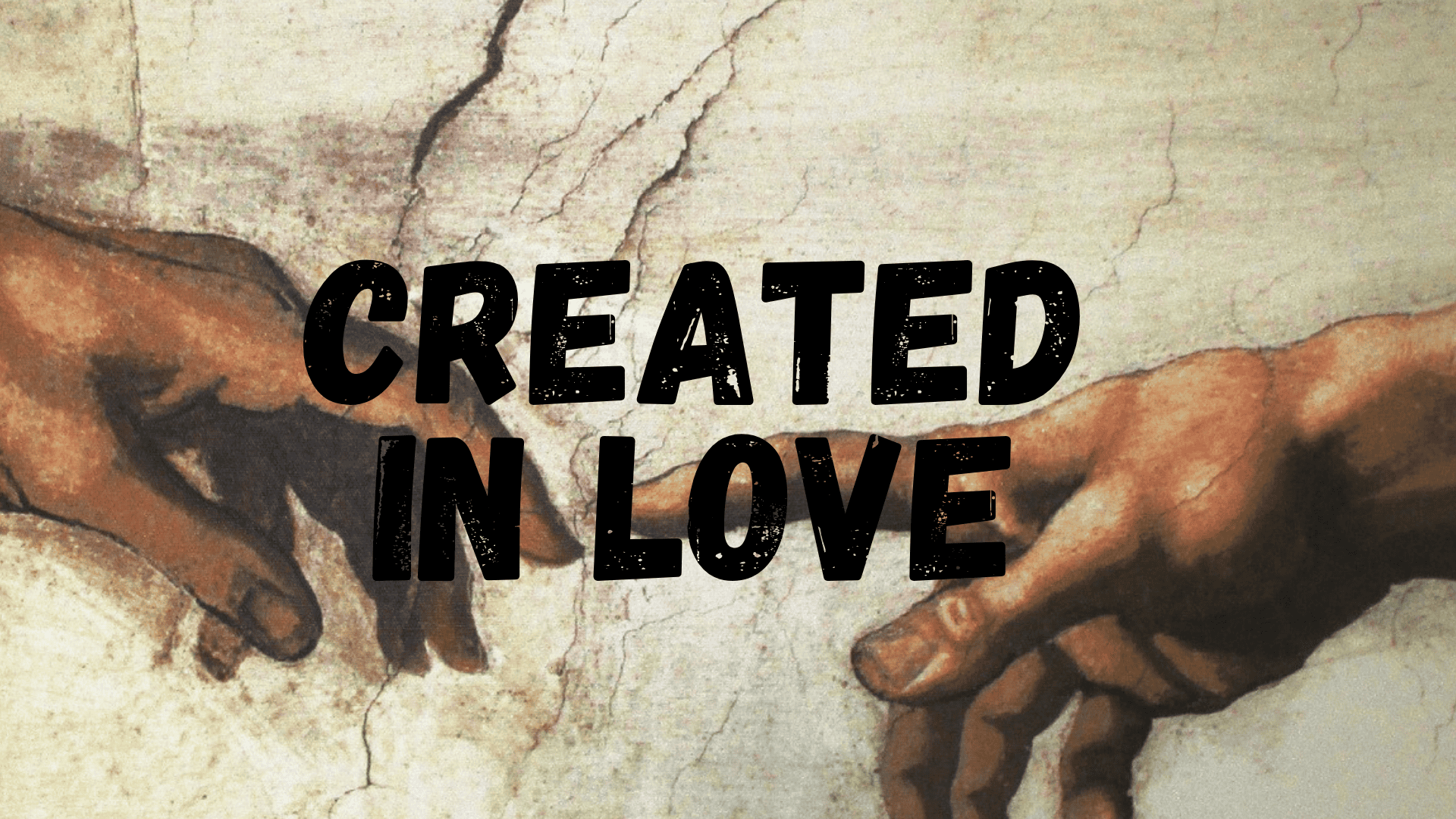
The first 11 chapters of Genesis are the origin story of all that is. In it we find unexpected account. It is not written to satisfy our desire to know the “how” As we will see, these 11 chapters are far more concerned to tell us “who” creates, and what becomes of the “good" world he hands his image bearers.

